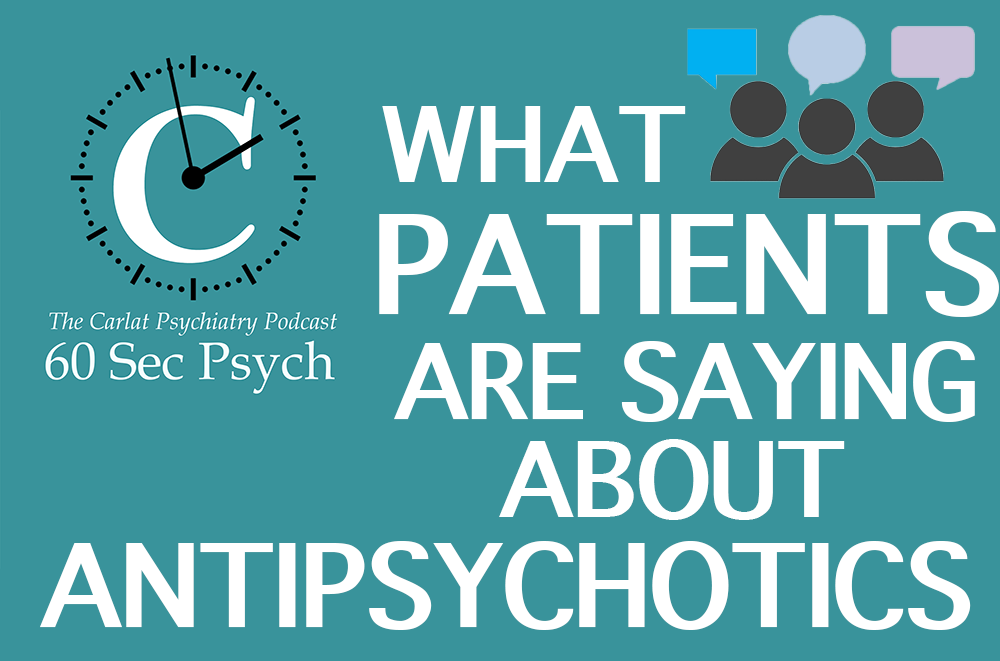What Patients Are Saying About Antipsychotic [60 Sec Psych]
Podcast, Volume , Number ,
https://www.thecarlatreport.com///
In the early 1990’s, half of US patients with bipolar disorder took lithium. Now it’s closer to 15%, and the use of antipsychotics has more than doubled to fill the gap. A new survey reveals what patients think about these newcomers. [Link]
Published On: 9/9/2020 Duration: 2 minutes, 49 seconds Transcript: In the early 1990’s, half of US patients with bipolar disorder took lithium. Now it’s closer to 15%, and the use of antipsychotics has more than doubled to fill the gap. A new survey reveals what patients think about these newcomers. This was an online survey of 200 US adults who – by their self report – were diagnosed with bipolar I disorder and had taken an antipsychotic within the past year. Aripiprazole was the most common, followed by quetiapine (52%), risperidone (37%), olanzapine (29%), and lurasidone (24%). Overall, people were satisfied with the efficacy but dissatisfied with the tolerability. 98% had at least one side effect, and most of the side effects were not trivial. 92% felt the side effects had a negative impact on their relationships. Patients were embarrassed by the side effects, particularly anxiety, weight gain, followed by involuntary spasms or movements and trouble concentrating. I’m reminded of Dr. Mago’s warning in our June 2019 issue on side effects that patients are not likely to put up with a side effect they find embarrassing. The ones that bothered people the most were anxiety, weight gain, and feeling like a zombie or having no emotions – and the rates of these 3 burdensome effects were in the 70% range. Antipsychotic side effects carried over into all areas of life – family, romance, friendships, and job performance. 30-50% felt the antipsychotic impacted their job, while 60-70% felt the bipolar symptoms impacted their job The bottom line: While the PDR can tell us what side effects to expect, surveys like this tell us just how damaging those side effects are. And the numbers here are much higher than what’s reported in the PDR. What’s unclear is whether lithium or the anticonvulsants would raise the same level of complaint. In last Monday’s podcast we reviewed more encouraging survey data for lamotrigine and lithium, and next month we’ll feature a review of mood stabilizer tolerability in our online journal. Got feedback? Take the podcast survey.




Leave A Comment
You must be logged in to post a comment.